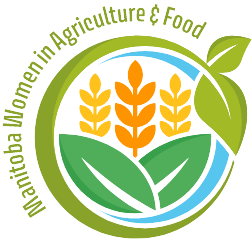By April M. Stewart, Special MWAF Contributor
You know those interview questions that are meant to help potential employers drill into the deepest corners of your soul, ostensibly to see if you’re made of the “right” stuff?
A favourite back in the day that always tripped me up was “What are your best and worst characteristics?”
It’s easy to think of negative attributes. Humans have an innate ability to focus on the bad and dangerous; it’s what kept us safe when we roamed the savannas amidst untamed giant predators. We struggle, however, to identify and own the good things about ourselves because we’re either taught to be humble, we’re constantly comparing ourselves to others, holding ourselves up to impossible standards, or unconsciously tripping off the old cave(wo)man default brain setting.
For years I was quick to point out that while I am, unquestionably, a hard worker with exacting standards, I am also very impatient. And, yes, the ‘impatient’ requires the qualifier of ‘very’, because I am. Very.
 Then one day it hit me like a surprise roundhouse kick from a fresh heifer: being impatient is not inherently bad. In fact, it can be good and very useful. Being impatient might never have got me nominated for any customer service awards back in my retail days, but my impatience also means I get. Sh*t. Done.
Then one day it hit me like a surprise roundhouse kick from a fresh heifer: being impatient is not inherently bad. In fact, it can be good and very useful. Being impatient might never have got me nominated for any customer service awards back in my retail days, but my impatience also means I get. Sh*t. Done.
My worst trait is also my best trait.
I realized that I can leverage a weakness into an opportunity to generate good things. In this case, efficiency and productivity as it relates to work. But how does this translate if we’re talking about a farm to consumer conversation?
Changing my frame of reference, beliefs and assumptions about a perception I had held on to for so long – reality as far as I knew until that light bulb moment – made me realize that I probably have other beliefs and make other assumptions that aren’t necessarily true.
For example, for many years I was asked the same “dumb” questions over and over about farming and it used to really get under my skin.
Or people made the same assumptions about me when I went to school, and lived and worked in Montreal for fifteen years: because I love trendy, funky clothes and jewellery and had a purse collection that numbered close to 100(!), whenever I would say, “I’m from a dairy farm”, I’d hear, “But you don’t look like a farmer!” To which I would internally rage and scream and mentally roll my eyes, but outwardly I would laugh politely and say something like, “Yes, well, overalls and pitch forks went out of style decades ago.”
Until I realized I was doing the same darn thing.
I was assuming non-farmers were asking ‘dumb’ questions because they were too stupid or wilfully ignorant.
I believed they were being judgmental and stereotyping.
My frame of reference is my experiences and reality just as their frame of reference stems from their experiences and perceptions of the reality they know.
But if I took the bad – the eye-rolling, toddler-level questions or the surprise that a farmer does in fact look like an ‘ordinary’ person – and used it instead as the poop scattered seedbed from which to grow good things, we could both learn something.
They would learn new things about agriculture, filling in knowledge gaps that help them create a new frame of reference, new beliefs, a new reality.
I would continually learn how to improve my empathy and perspective-taking skills, making me more open to answering the same question a hundred times, because every time I answer it is another chance to further the farm to consumer dialogue.
It was an eye-opening moment and it’s been a huge lesson in patience.
As a chronically impatient person, I want to see results now. I want things to fall into place immediately and I want people to just GET IT already, geez!
But as Justice Ruth Bader Ginsburg famously said, “Real change, enduring change, happens one step at a time.” She firmly believes that lasting change is incremental. Incremental improvement will take an abundance of patience, but if it means a better Canadian agriculture industry in the end then I’ll be a paragon of patience.
This blog originally appeared here. You can read more blogs like this here and here.




